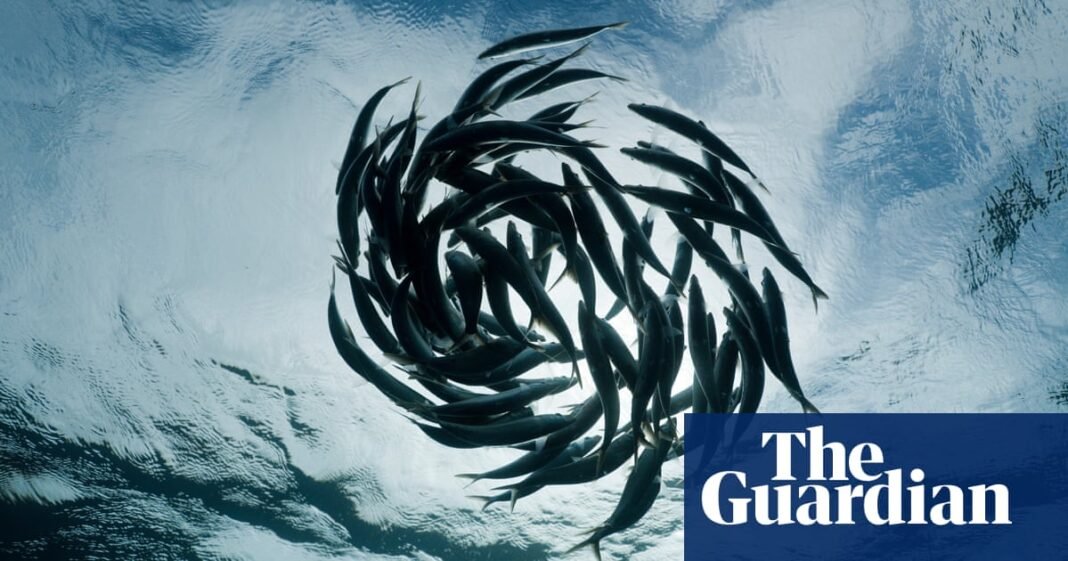The State of Sardines: Surging Stocks and Threats from Climate Change
Sardines, also known scientifically as Sardina pilchardus, are witnessing a surprising increase in stocks in UK waters despite ongoing environmental challenges. While the species thrives due to its rapid reproduction, Mediterranean sardines are struggling with food shortages exacerbated by climate change.
Lead: In an unexpected turn for marine life in British waters, sardines (Sardina pilchardus) are thriving, attributed to their high reproductive rates and reduced predation from overfished larger fish. This notable change comes as climate change begins to affect sea life in other regions, particularly the Mediterranean. The discovery that sardines are experiencing a population boom in the UK, while their counterparts in warmer waters suffer from food shortages and increasing microplastic ingestion, raises insights into the complexities of marine ecosystems.
Understanding Sardines: Distinctions and Trends
Sardines, distinguished by size, can be categorized as pilchards when they exceed 15 centimeters in length. This classification, however, has not remained clear-cut.
– **Size Definitions**:
– Pilchards: Sardines longer than 15cm
– Sardines: Fish smaller than 15cm
Historically, pilchards have waned in consumer preference, leading to a rebranding strategy in Cornwall where they are marketed as “Cornish sardines.” This clever marketing move has led to increased sales, playing a significant role in the fish’s current resurgence. Nevertheless, the market has seen an influx of other small fish being mislabeled as sardines, which complicates consumer understanding.
The Resurgence of UK Sardines
Historically, sardines have been a staple in coastal communities, providing a reliable food source. Now, with significant shifts in fishing practices and marine ecosystems, UK waters are bustling with sardine populations:
– **Reproductive Capacity**:
– A single female sardine can produce up to 50,000 eggs.
– **Current Stock Health**:
– Reports indicate the presence of very large shoals of sardines thriving in UK waters.
This population boom is primarily attributed to a reduction in predatory fish populations due to overfishing, allowing sardines to flourish without the threat of being preyed upon.
Challenges in Mediterranean Waters
Despite the prosperous conditions in UK waters, sardines that reside in the Mediterranean face serious challenges. The changes in climate and environment are key factors contributing to their decline.
– **Food Supply Issues**:
– Sardines are dependent on plankton for nourishment, which is dwindling as warming waters disrupt their ecosystems.
– **Impact of Microplastics**:
– Disturbingly, Mediterranean sardines are found to be ingesting increased amounts of microplastics, leading to health concerns for both sardines and humans consuming them.
– **Declining Catch Rates**:
– Due to these adverse conditions, fishermen in Mediterranean regions have reported a decline in sardine catch rates, contrasting sharply with flourishing stocks in the UK.
Climate Crisis and Its Oceanic Ramifications
The effects of climate change are now palpable across the globe, with the marine environment undergoing significant alterations:
– **Warmer Waters**:
– The North Atlantic has experienced rising temperatures, potentially jeopardizing the future habitat of various marine species, though UK sardine stocks remain currently unaffected.
– **Plankton Migration**:
– Critical plankton species are moving northward in search of cooler waters, triggering a shift in the ecosystem balance.
Experts are warning that ongoing climate changes could ultimately affect the food webs related to sardines, despite the current health of UK populations.
Conclusion: The Future of Sardines in a Changing World
As the sardine population flourishes in UK waters, the stark contrasts with their Mediterranean counterparts serve as a reminder of how interconnected and vulnerable marine ecosystems can be. The situation portrays a dual narrative: on one front, a prosperous sardine industry buoyed by clever marketing and reduced predation; on the other, the looming threats posed by climate change affecting food sources and the overall health of the species. Continuous monitoring and tailored fisheries management strategies will be crucial for ensuring that these small fish can be sustained in the face of dramatic environmental shifts.
Keywords: sardines, Sardina pilchardus, UK waters, Mediterranean, climate change, overfishing, marine ecosystems, plankton, microplastics, fisheries management.
Hashtags: #Sardines #ClimateChange #MarineLife #Fisheries #SustainableFishing #SardinaPilchardus #EnvironmentalHealth #OceanConservation
Source link




 Stay Informed Without the Overload!
Stay Informed Without the Overload!